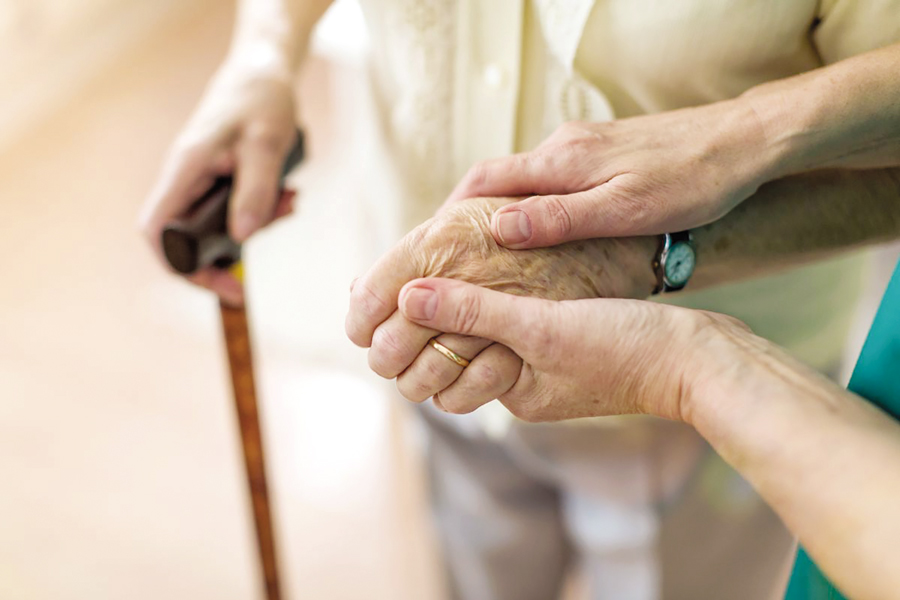
Published :
Updated :

The International Day of Older Persons was observed on October 1 with the theme, "Older Persons Driving Local and Global Action: Our Aspirations, Our Well-Being and Our Rights." The theme highlights that older persons, far from being passive beneficiaries, can play a transformative role in building resilient and equitable societies by sharing their knowledge and experience. A reflection of this can be drawn from Bangladesh's current interim government, where almost all the advisors, including the chief advisor, are elderly people. Even in past governments, ministers, opposition leaders, presidents, and chief justices have largely been from older generations. Yet, the irony is, in a country that has literally been run by elderly people, ordinary older citizens - without income, pension, or meaningful government support - are left to suffer immeasurably.
Article 15 of the Constitution calls for ensuring the rights of elderly citizens. In line with this provision, the National Policy on Older Persons 2013 was adopted to guarantee a dignified, poverty-free, active, healthy, and secure social life for those aged 60 and above. According to the 2022 census by the Bangladesh Bureau of Statistics (BBS), the country now has over 15 million people in this age group.
The United Nations notes that the average life expectancy in Bangladesh has been steadily rising, thanks to advancements in medical science and healthcare services. At present, the average life expectancy stands at 70.06 years for men and 71.98 years for women. While this increased longevity is a positive sign of progress, it also means that people are now living longer in retirement than previous generations. Increase in life expectancy poses a dual challenge: ensuring proper care for senior citizens while also finding meaningful ways to utilise their experience and skills for the greater benefit of society.
However, the hard reality is that the aged people in this country do not get a fraction of the institutional facilities and benefits that their counterparts are entitled to in the developed countries. Moreover, their wellbeing is becoming a casualty of modernisation itself. The break-up or slow disintegration of the traditional family structure has left the aged ones high and dry, physically deprived and psychologically estranged. Their pain and solitude hardly find any exposure in the public domain.
A recent report of a 65-year-old man being abandoned at a district hospital by his relatives stands as a glaring example of the neglect some ill-fated senior citizens face. During the pandemic, a heart-wrenching case emerged when an elderly mother was left in a forest by her own children, who suspected her of being infected with coronavirus. These are not isolated incidents. Elderly people are often seen begging on the streets, at railway stations, bus terminals.
Even more disturbing are the silent sufferings endured by the elderly within their own households. With age, many parents find themselves weighed down not only by frailty but also by the neglect of their children and the pain of loneliness. The very children who learned to walk holding their parents' hands have now abandoned those same hands when they need them most. These stories of forgotten parents are neither rare nor new. It is painfully common. Countless mothers and fathers, who once gave their best years to raising families with love, sacrifice, and unyielding devotion, now crave for companionship, support, or even the bare means of survival. Yet, financial support, time, patience, and compassion are too often looked upon as luxuries that many of their offspring cannot afford.
The Parents' Maintenance Act 2013 was passed to provide a legal framework for the financial and physical care of elderly parents who are unable to support themselves. The Act mandates every child to ensure maintenance for their parents and, in parents' absence, for their grandparents (paternal and maternal). The Act also mentions that any person violating any of the provisions will be subjected to a fine of one lakh taka; failing which, s/he may face imprisonment for up to three months.
The Law has been enacted to make it obligatory for sons and daughters to care for their elderly parents and bear their expenses. However, familial love and responsibility cannot be instilled solely through legal measures, making enforcement of the law challenging. It is still unheard of any parent having taken legal action against their child using this law. The very existence of the law is intended to act as a moral reminder and obligation for financially capable children to provide for their parents.
The government should also step up support for elderly citizens. In the 2025-26 fiscal year, the monthly allowance for elderly persons has been increased from 600 to 650 taka. Around 5.5 million people benefit from these programmes. Even after the slight increase in the elderly allowance, the amount remains modest and its coverage is limited, while the beneficiary selection process is riddled with irregularities. Concerns have been raised over age falsification and partisan considerations in the registration process for elderly allowances. Some elderly people have even complained that they had to pay bribes to be enrolled in this allowance programme.
Apart from increasing the elderly allowance both in amount and coverage, the government must introduce other comprehensive support measures to ensure dignity and well-being for senior citizens. These could include establishing senior citizens' homes at every districts, providing free medical treatment and essential medicines at public hospitals and community clinics, reserving seats on all forms of public transport, offering special discounted tickets, and setting up separate ticket counters for the elderly. Such initiatives would not only offer the much-needed assistance but also help restore a sense of respect, security and inclusion for older members of society. But, it is ultimately societal conscience, empathy and family responsibility that can ensure the dignity, security and well-being of the senior citizens.
aktuhin.fexpress@gmail.com


 For all latest news, follow The Financial Express Google News channel.
For all latest news, follow The Financial Express Google News channel.